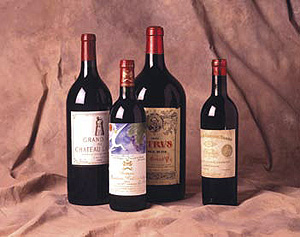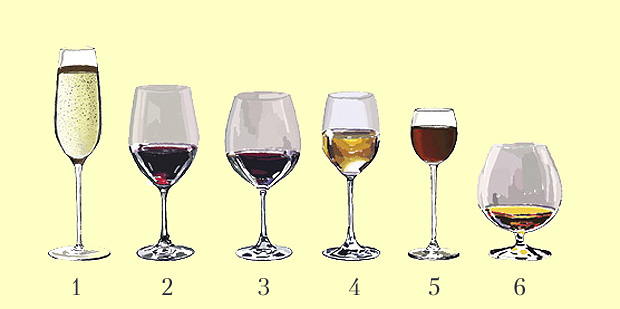IN VINO FUTURUS: FINE WINES AS A MEANS OF INVESTMENT
 The first years of the millennium marked Russia's newest era of conspicuous consumption, akin to the bygone extravagant spending habits of Russian merchants whose wealth surpassed those of the tsars. Before the recent crisis, the Russian nouveau riche stormed the world with their hussar-style showing-off when they ordered. Their antics included ordering free-flow premium champagne for everyone present and considering "the most expensive" to be a synonym for "the best". But the cold shower that the financial crunch proved to be has been beneficial to wealthy Russians in a sense: it has allowed them to discover values other than multiple zeros on a price tag, that have been hidden in products. Out are reckless spending and living by the day; in are the prudence of wise investment and a wish to adhere to the refined habits of the Old World. One of them is the culture of fine wines, which is not only palate-pleasant but viewed by experts as a solid means of investment.
About two years ago, Russian connoisseurs and businessmen joined the global practice of investing in young wines, which will be bottled in a couple of years and opened in a couple of decades. But what should you know before venturing into this type of investment?
Buying fine wine before it is bottled at its very first offering price, which may bring significant future returns, is called "en primeur" in the French wine trade. After harvesting the chateau's crop (usually around September), initial fermentation in vats is performed, followed by the selection of the best vats to be transferred into oak barrels for further fermentation and maturation. These barrels will be stored away in the chateau's wine rooms for 14 to 20 months. Around March in the year following the harvest, the new wine is tasted for the first time by growers, wine critics and connoisseurs. After this step, they are able to make initial opinions about the quality of the harvest, thereby allowing the chateau's owner to peg a price per bottle. From the time the "en primeur" is offered, all orders must be paid in full within the next 30 days. But take note that delivery is not till another one and a half to two years later, or when the chateau feels the wine is ready for bottling.
When it comes to red Bordeaux, Robert Parker is the world's most influential wine critic. He redefined modern American wine criticism through the simple innovation of scoring wines on a 100-point scale. Since his first wine publications in the 1970s, Parker's influence has grown to unprecedented levels. In Bordeaux, most chateaux wait until they have received their Parker scores before releasing their prices. A wine rated highly by Parker can double or triple in value.
Parker's opinion of the 2009 vintage of Bordeaux wines is that "it may turn out to be the finest vintage I have tasted in 32 years of covering Bordeaux". He has given 18 wines scores of between 98 and 100, which is remarkable, even for a great vintage. A respectable source of information, wine magazine Decanter, cites another prominent wine expert, Steven Spurrier, who defines the year 2009 as the "best vintage of my lifetime". All this makes everybody expect the value of Bordeaux 2009 to soar.
The "en primeur" system offers big advantages to consumers, who will receive guaranteed delivery of wine at the lowest price it will ever sell for and the convenience of purchasing top classified growths that might otherwise be hard to find once the vintage is officially released. For some, this can be a dual form of investment: collecting their favourite wines for both personal consumption and reselling them later at a profit. Another important benefit is the assurance of the provenance of the wines when bought "en primeurs".
Not just anyone, though, can knock on a chateau's doors and request to buy a few bottles of its best vintage. Traditionally, each wine producer has a few exclusive brokers, called "negociants", who allocate the wine to their buyers. Second in the line are importers and wholesalers, then finally the precious bottles go to consumers through retail stores and restaurants. Also, based on the hype and expected price increases, fraud alerts have been issued that "rogue Chinese wine traders" might be mounting wine scams, selling futures they know they can't deliver. That's why it's important to find a trusted and reputed wine merchant.
Photos courtesy of Corndale Consultants Pte Ltd
By Natalia Makarova
Classy Glasses
The eternal relationship between the form and function can be fully applied to making the right choice of wine glass, which, when its shape is right, brings out the bouquet of the wine. The general rules are simple: red wines require larger glasses, white wines taste better in medium-sized glasses and fortified wines like smaller shapes. A glass should be made of thin, clear crystal and be large enough to contain a reasonable amount of wine when only a third- to half-full. There is a specifically-designed shape for virtually any kind of wine, but the major types can see you through most occasions.

1. Champagne
The most popular shape, which is also is known as a "flute". It is a stemmed glass with a cone-shaped narrow bowl, which allows the champagne to retain carbonation and form its signature bubbles.
2, 3. Dry wines
Glasses for red wines always have a large bowl and long stem. Large "tulip" (2) shapes are more suitable for red Bordeaux wines, while Burgundy tastes better in glasses with large sphere-shaped bowls (3).
4. White wines
Smaller "tulips" are ideal for white wines.
5. Port and sweet white wines
A smaller version of a Bordeaux glass.
6. Cognac
A large bowl and slightly narrow top "hushes" the spirit and brings out its distinctive bouquet – fruitiness, fullness and finesse of taste.
|
 +65 6696 7068
+65 6696 7068
 info@meridian103.com
info@meridian103.com
 PDA
PDA
 +65 6696 7068
+65 6696 7068
 info@meridian103.com
info@meridian103.com
 PDA
PDA

I represent a Singaporean Company that acts as a broker for clients Bordeaux French wines for investment purposes. We have offices in KL & Hong Kong and stores in Shanghai.
I still have the 2009 EN PRIMEUR wines available at excellent prices. My MOBILE NO: 8444 0458
Kevin Goldsmith, 2010-09-23